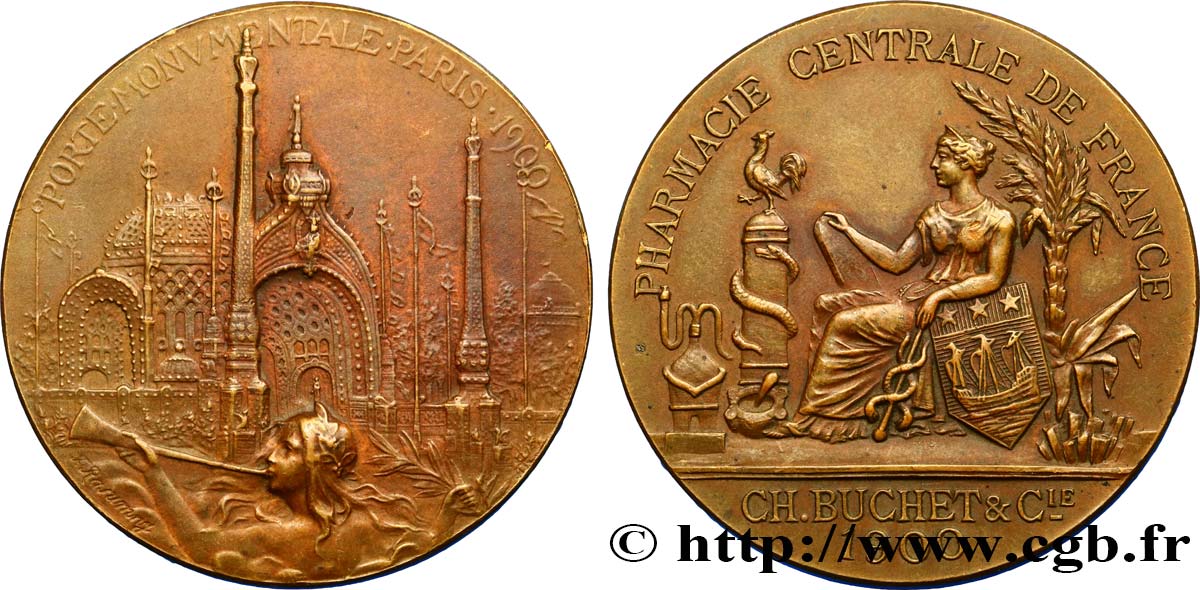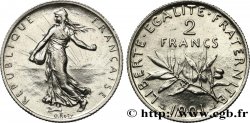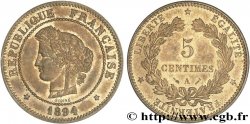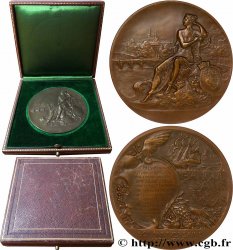fme_413272 - III REPUBLIC Médaille de Pharmacie / Porte Binet
Not available.
Item sold on our e-shop (2018)
Price : 175.00 €
Item sold on our e-shop (2018)
Price : 175.00 €
Type : Médaille de Pharmacie / Porte Binet
Date: 1900
Mint name / Town : 75 - Paris
Metal : bronze
Diameter : 42,5 mm
Orientation dies : 12 h.
Engraver RASUMNY Félix (1869-1940)
Weight : 33 g.
Edge : lisse
Coments on the condition:
Superbe médaille avec une patine homogène
Obverse
Obverse legend : PORTE. MONUMENTALE. PARIS. 1900..
Obverse description : Porte monumentale de l’architecte Binet, avec la Renommée au premier plan.
Reverse
Reverse legend : PHARMACIE CENTRALE DE FRANCE // CH. BOUCHET & CIE / 1900.
Reverse description : La pharmacie personnifiée, assise à gauche, accoudée sur l’écu de Paris.
Commentary
René Binet a réalisé la Porte monumentale, place de la Concorde, pour l’Exposition universelle de 1900 à Paris.
Commandée en décembre 1896, et construite de mars 1899 à mi-avril 1900, René Binet eut plusieurs sources en tête lors de la conception : des souvenirs d’enfance aux architectures polychrome de Venise, du Traité des couleurs de Johann Wolfgang von Goethe (1749-1832) aux travaux du biologiste allemand Ernst Haeckel (1834-1919), dont Binet aimait se plonger dans les cinquante volumes conservés à la bibliothèque du Muséum national d'histoire naturelle de Paris comme l'indique Esquisses décoratives (1902), son magistral ouvrage préfacé par Gustave Geffroy, dans lequel il détaille sa méthodologie.
Binet voulait réaliser quelque chose « qui n’a jamais été fait en architecture, une architecture de couleur et de lumière ». Ainsi cette porte a été remarquée, non pas par la polychromie en elle-même, mais comme étant la première tentative de domestication de l’électricité au service de la couleur et de l’architecture.
En août 1900, il est nommé chevalier de la Légion d'honneur..
Commandée en décembre 1896, et construite de mars 1899 à mi-avril 1900, René Binet eut plusieurs sources en tête lors de la conception : des souvenirs d’enfance aux architectures polychrome de Venise, du Traité des couleurs de Johann Wolfgang von Goethe (1749-1832) aux travaux du biologiste allemand Ernst Haeckel (1834-1919), dont Binet aimait se plonger dans les cinquante volumes conservés à la bibliothèque du Muséum national d'histoire naturelle de Paris comme l'indique Esquisses décoratives (1902), son magistral ouvrage préfacé par Gustave Geffroy, dans lequel il détaille sa méthodologie.
Binet voulait réaliser quelque chose « qui n’a jamais été fait en architecture, une architecture de couleur et de lumière ». Ainsi cette porte a été remarquée, non pas par la polychromie en elle-même, mais comme étant la première tentative de domestication de l’électricité au service de la couleur et de l’architecture.
En août 1900, il est nommé chevalier de la Légion d'honneur..








 Report a mistake
Report a mistake Print the page
Print the page Share my selection
Share my selection Ask a question
Ask a question Consign / sell
Consign / sell
 Full data
Full data



